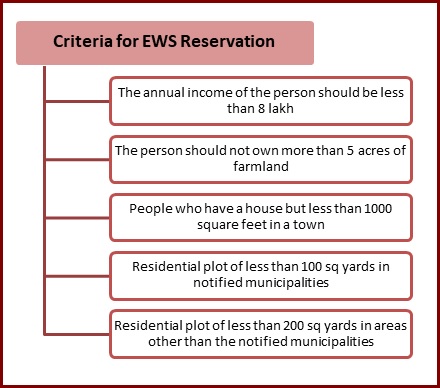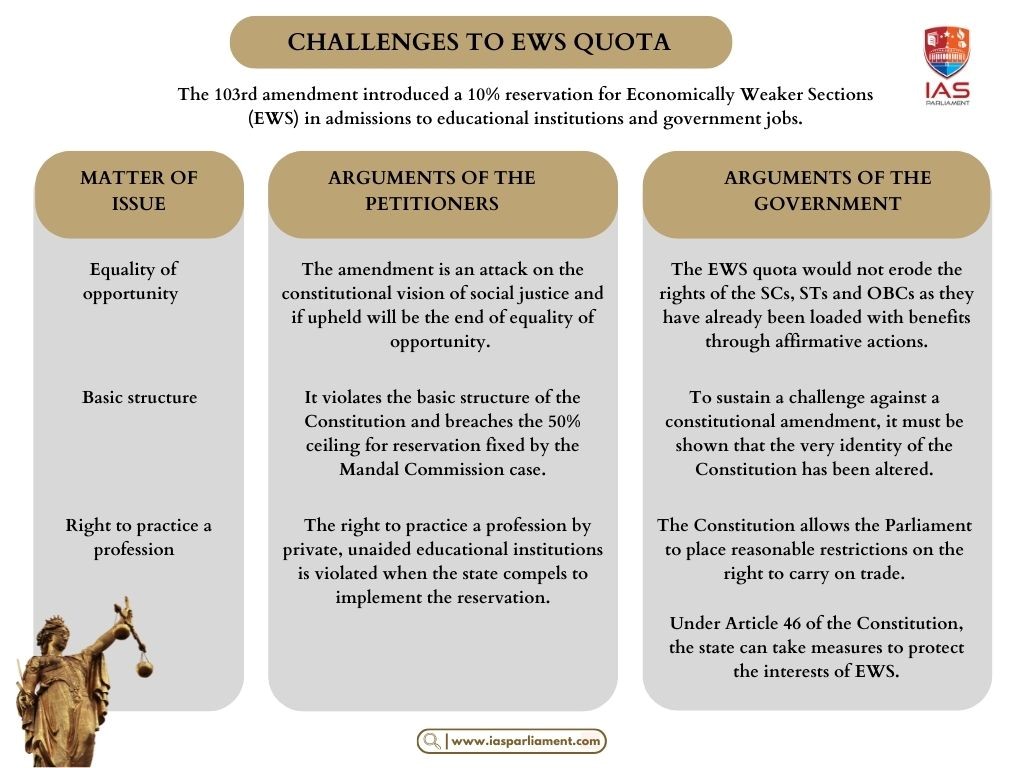The Supreme Court is all set for its decision on the constitutional validity of the 103rd amendment to the Constitution, which introduced a 10% EWS reservation in admissions to educational institutions and government jobs.


In Indra Sawhney case, the Supreme Court held that economic backwardness cannot be the sole criterion for identifying backward class.
Article 19 (1) (g) of Constitution of India provides Right to practice any profession or to carry on any occupation, trade or business to all citizens.
Article 46 states that “The state shall promote with special care the educational and economic interests of the weaker sections of the people, in particular, of the SCs and the STs, and shall protect them from social injustice and all forms of exploitation”.

To know about Supreme Court Ruling on EWS Quota – Part 2, click here
Related links - EWS Quota in NEET Admissions, Sequence of Implementation of EWS Quota, Rs 8 Lakh Income Cap for EWS
References